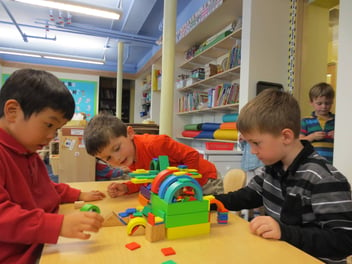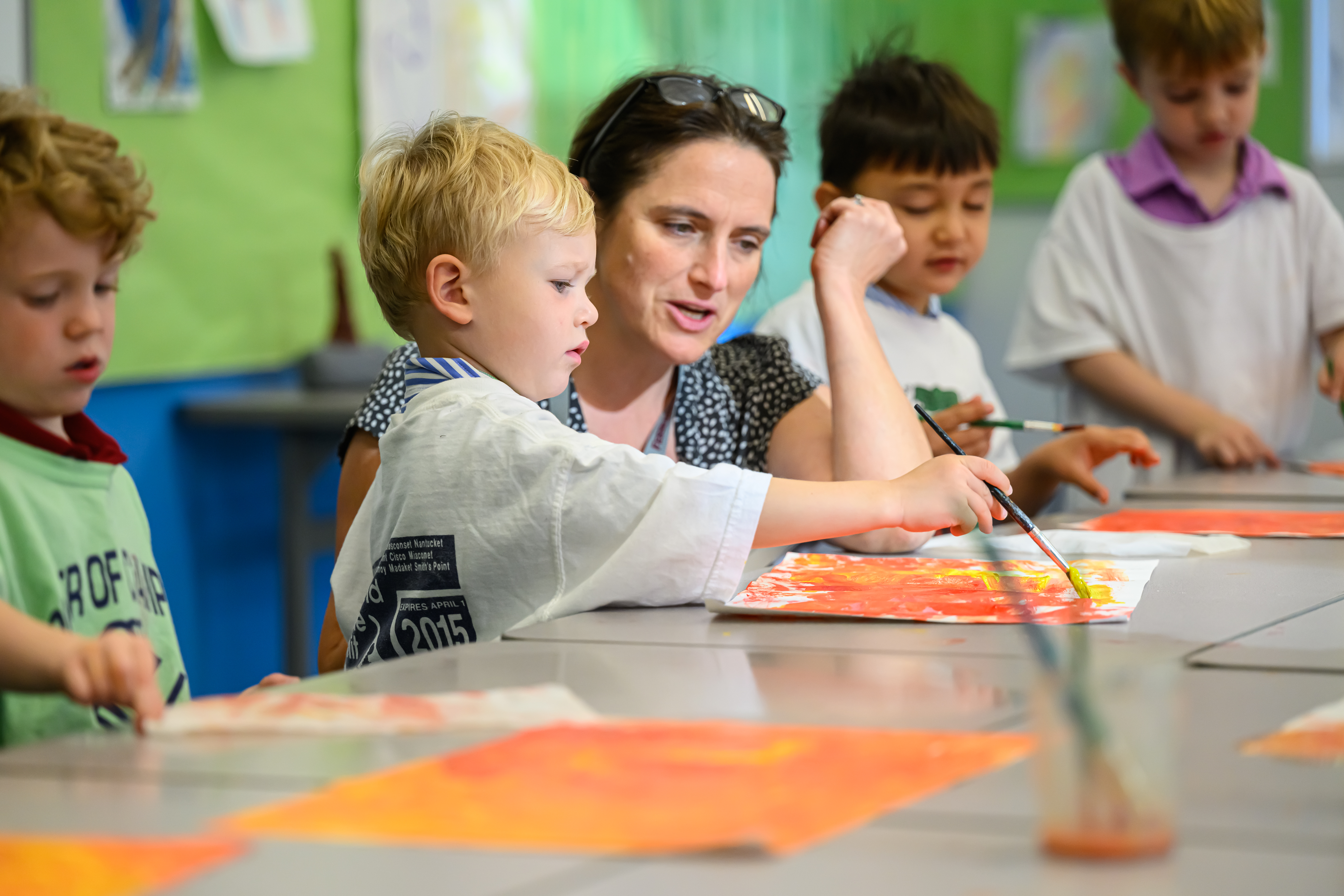If you’re preparing for your young child’s academic journey to begin, you may have encountered the term “kindergarten readiness” in your research. But what does it actually mean? How ready does your child need to be for kindergarten? It may be hard to reconcile an image of your spirited three-year-old with a vision of a young student sitting dutifully at a desk, practicing math and literacy skills. Claims that early education programs are becoming increasingly rooted in academics rather than play-based learning have made headlines for more than a decade, and recent research backs up those claims. As you evaluate your child’s early educational options, our Pre-K school near Boston believes there are a few things to consider first.
Is Kindergarten the new first grade?
A study titled, “Is Kindergarten the New First Grade?” published by researchers at the University of Virginia shares empirical evidence showing that kindergarten classrooms have changed over time, and that standards are getting higher for young learners at earlier points in their academic journeys.

So what to do? Whether you are bothered by the trends in early childhood education or not, Suzanne Bouffard, author of The Most Important Year, posits that the best way you can help your child hit the ground running in kindergarten is to enroll your son or daughter in a quality Pre-K program.
What Makes for a “Quality” Pre-K Program?
“You want your children to have hands-on experiences and opportunities to learn about things that apply to their lives,’’ Suzanne Buffard shared with NPR. She adds that a quality program focuses on social-emotional learning, promotes self-control and positive classroom behavior such as sharing toys with friends, exchanging turns, and expressing emotions in productive ways. And, good preschools foster creativity, celebrate curiosity about the world and how things work, and encourage children to become problem solvers by thinking outside of the box and asking questions.
According to an article in The Boston Globe, a quality Pre-K program can provide building blocks for a lifetime of learning, and this time should be all about creating an environment of joy. In an interview with Wheelock College early education professor Diane Levin, she stated, “We want [students] to see school as an engaging place where they’re excited about what they’re learning, where they want to go and learn more.’’
Academics are most impactful when they’re rooted in play.
A report titled, “Reading Instruction in Kindergarten: Little to Gain and Much to Lose,” indicates that the Common Core State Standards place pressure on teachers to resort to inferior classroom practices to encourage children—many of whom are not developmentally ready—to read. The report claims, “active, play-based experiences in language-rich environments help children develop their ideas about symbols, oral language, and the printed word—all vital components of reading.” Unfortunately, kindergarten classrooms tend to employ teacher-led instruction more often than active, play-based, experiential learning that research proves is necessary to promote cognitive development.

In an interview with NPR, author Suzanne Bouffard shared her thoughts about promoting the—in her opinion, wrongful—idea that all children must read by the end of kindergarten. She explains, “There’s a completely normal range of development in which children start learning how to read. If you push too hard, sometimes it turns kids off.”
She clarifies, “It’s never too early to expose children to rich language, word games, shapes of letters, and the sounds they make. But there’s a big difference between exposing children to those things and expecting everybody to meet a certain reading standard at a certain age and testing them on it.”
Could a private school be a better option?
At Fessenden, our youngest students become Super Readers and use fly swatters to catch the word of the day. We believe that engaging children in creative, imaginative play is a great way to develop a love of learning. Since we’re not bound to standardized tests, we are able to develop a curriculum that suits the distinct and diverse needs of our little learners in ways that public schools are not able to accommodate.
Read On

Does a High-Quality Pre-K Matter? What Researchers and Teachers Say About The Best Pre-K Programs

7 Signs Your 5-Year-Old Is Ready For Private Kindergarten

